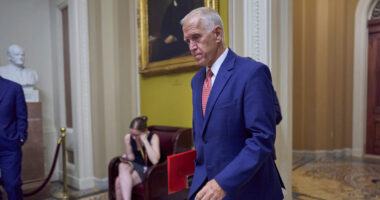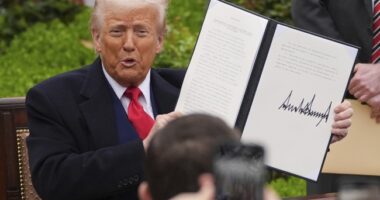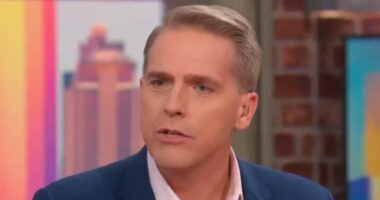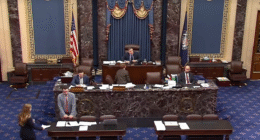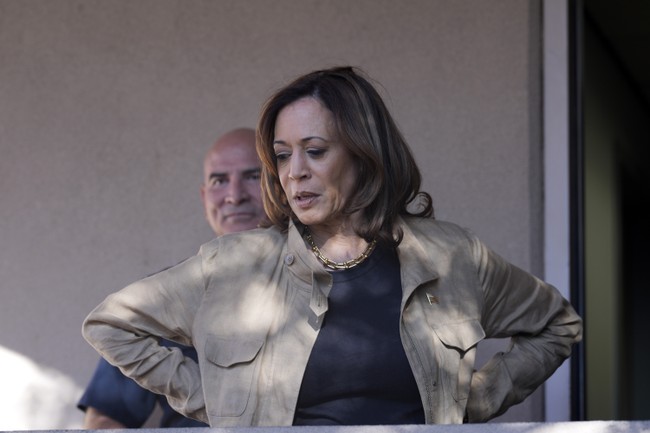
The canary in the coal mine that indicated that Vice President Kamala Harris and the Democrat party lost the culture war? Sports.
During an interview with Semafor, Kamala Harris’ campaign’s deputy manager, Rob Flaherty, discussed the challenges they faced in getting Harris booked on sports culture television shows and podcasts. This struggle was a sign of bigger issues in the media and culture landscape. Ultimately, these challenges contributed to Harris losing the cultural battle, the election, and the popular vote. This defeat was driven by President-elect Donald Trump’s ability to connect with sports culture and new media.
Flaherty pointed out that in the past, sports was viewed as a neutral ground that could bring people together despite their political differences. However, over time, sports became increasingly linked to the conservative values championed by Trump.
Semafor’s
According to Flaherty, the merging of sports and culture created a situation where these domains were associated with the conservative values supported by Trump. This made it difficult for athletes to openly support Harris’s campaign. Sports personalities also hesitated to have Harris on their shows as they wanted to avoid discussing politics.
“That’s not to say Steph Curry and Steve Kerr and LeBron [James] and all them coming out wasn’t impactful or important,” he said. “It was more impactful because it had gotten so much harder. But certainly the culture that has been associated with heavy sports-watching has become associated with right-wing culture in a way that makes it harder for us to reach people.”
Faherty declined to say who turned Harris down, but she didn’t appear on key shows hosted by sports figures sympathetic to Democrats, like Colin Cowherd, Bill Simmons, or the Kelce brothers. (As Semafor first reported at the time, Harris did appear on All The Smoke, a popular but more niche basketball podcast, and NFL hall-of-famer Shannon Sharpe’s Club Shay Shay podcast.)
The campaign’s failure to completely crack the sports sphere was, to Flaherty, ominous, and part of a larger trend in which some influencers who had felt comfortable engaging with the Biden White House, demurred when asked to help Harris make her case to their followers. “When it’s not cool to talk about politics,” he said, “you’re kind of afraid of the audience.”
“Campaigns, in many ways, are last-mile marketers that exist on terrain that is set by culture, and the institutions by which Democrats have historically had the ability to influence culture are losing relevance,” he said.
Trump enjoyed the endorsement of sports figures like NFL kicker Harrison Butker, UFC president Dana White, and NASCAR driver Danica Patrick, each representing a different facet of American sports culture. In the weeks leading up to November’s election, Trump was welcomed by chants and cheers in one sports stadium after another.
President @realDonaldTrump arrives at Acrisure Stadium to chants of U-S-A! 🇺🇸 pic.twitter.com/TaVUjTDuT9
— Margo Martin (@margomartin) October 21, 2024
Former President Donald Trump shown on the video board here at Alabama-Georgia game pic.twitter.com/h3nBWWHjih
— Nick Kelly (@_NickKelly) September 29, 2024
Related:
Flaherty also acknowledged that Harris’ failure to appear on Joe Rogan’s podcast was a “missed opportunity” and pointed to a larger conservative ecosystem that trumped the influence of the Democrat’s strongholds in legacy media and Hollywood.
“It’s more than just young men. It’s a broader ecosystem,” he said. “Democrats have historically had these really close relationships with institutional media, institutional culture — Hollywood and the traditional press. There’s this entire cultural ecosystem that the Trump campaign did a really good job of cultivating over a long period of time.”
Reflecting on Trump’s impactful interview on “The Joe Rogan Experience” in the days before the election, I wrote:
While the Harris campaign swept sweetheart coverage from traditional media and the usual suspects in the Hollywood elite, she couldn’t capture a more authentic resonance that Trump cultivated in the rapidly growing world of sports culture and podcasting. Flaherty put it succinctly, “You don’t get a national eight-point shift to the right without losing hold of culture.”








